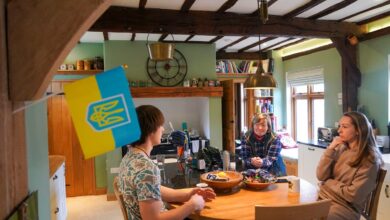Rishi Sunak admits he has used private healthcare

Rishi Sunak has finally admitted to using private healthcare after his repeated refusal to answer questions about reports he has enjoyed the services of a private GP.
The prime minister said he had used “independent” health care outside of the NHS during a feisty PMQs exchange in the Commons.
“I am registered with a NHS GP,” Mr Sunak said, before adding: “I have used independent health care in the past, and I’m also grateful to the Friarage Hospital for the fantastic care they’ve given my family over the years.”
The PM added: “I’m proud to come from a NHS family, and that’s why I’m passionately committed to protecting it with more funding, more doctors and nurses, and a clear plan to cut the waiting list.”
Mr Sunak was reportedly registered with a private GP practice in west London which guarantees patients with urgent concerns will be seen “on the day”.
On Sunday, the PM refused three times to answer questions about it during a BBC interview. “As a general policy I wouldn’t ever talk about me or my family’s healthcare situation … it’s not really relevant.”
Mr Sunak clashed with Labour leader Sir Keir Starmer on the government’s plan for anti-strike legislation to enforce minimum cover in the NHS and other key sectors. Sir Keir said the Tories had gone “from clapping nurses to sacking nurses”.
Sir Keir said that if the PM had negotiated with nurses and ambulance workers they would not be on strike – accusing him of “choosing to prolong misery”.
The Labour leader: “When I clapped nurses, I meant it. His response to the greatest crisis in the history of the NHS is to threaten to sack our nurses … The simple truth is, you can’t legislate your way out of 13 years of failure.”
Mr Sunak responded: “Why does he not support our minimum safety legislation? We all know why … it’s because he’s on the side of his union paymasters, not patients.”
The PM said the legislation to enforce minimum service levels for key services during strikes “shouldn’t be controversial”, adding: “No-one denies the unions freedom to strike but it is also important to balance that with people’s right to have access to life-saving healthcare.”
As thousands of ambulance staff strike again on Wednesday, Mr Sunak said it was “terrifying” that patients did not know “whether they would get the treatment they need” if they call 999.
The Labour leader quoted a government report that said long NHS waiting times were a result of “10 years of managed decline” – pointing to the fact that 7.2 million people are now waiting for treatment.
“He says he wants to be held to account over that. So, let’s be very clear, is his promise merely to get those numbers back to where they were before Covid – that is 4.6 million – or back to where Labour had them in 2010, almost half of that? Which is it?” asked Sir Keir.
Mr Sunak said the government had “a very clear plan to bring the waiting lists down”, adding: “I tell you what the NHS doesn’t need, what they don’t need is Labour’s only idea, which is for another completely disruptive, top-down, unfunded reorganisation buying out every single GP contract.”
Health secretary Steve Barclay has not ruled out backdating any salary increase in next year’s NHS pay settlement to the start of 2023. He is also thought to be considering whether a one-off hardship payment.
The health secretary told BBC Radio 4’s Today programme that he does not “think it is right” to “retrospectively” go back to last April when it comes to reviewing this year’s pay offer to NHS staff.
But Mr Barclay added: “But of course the unions made representations about that, and what the prime minister said at the weekend is nothing is off the table.”
Health unions announced on Wednesday that they will refuse to submit evidence to the NHS pay review body for the next wage round while the current pay dispute remains unresolved.





